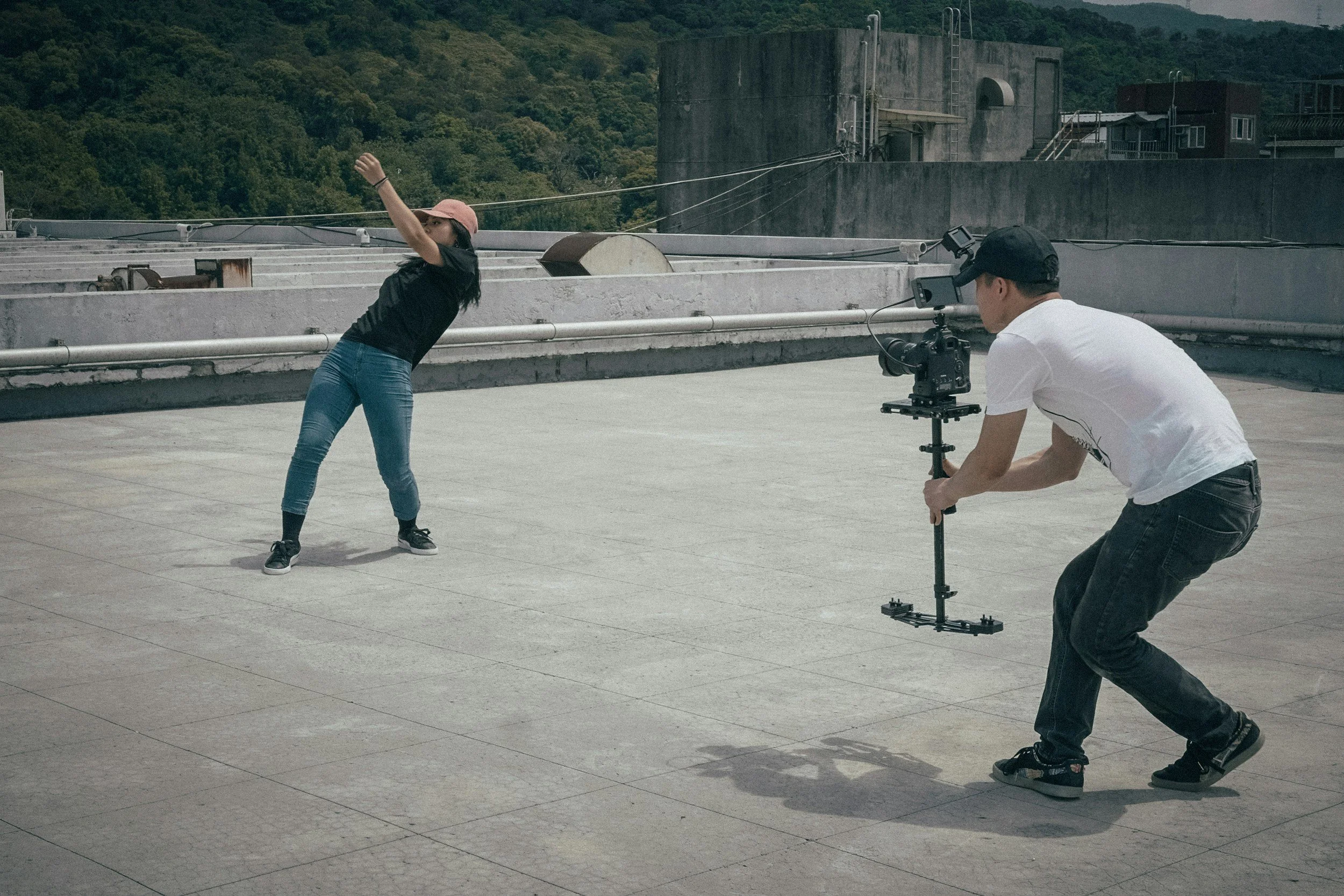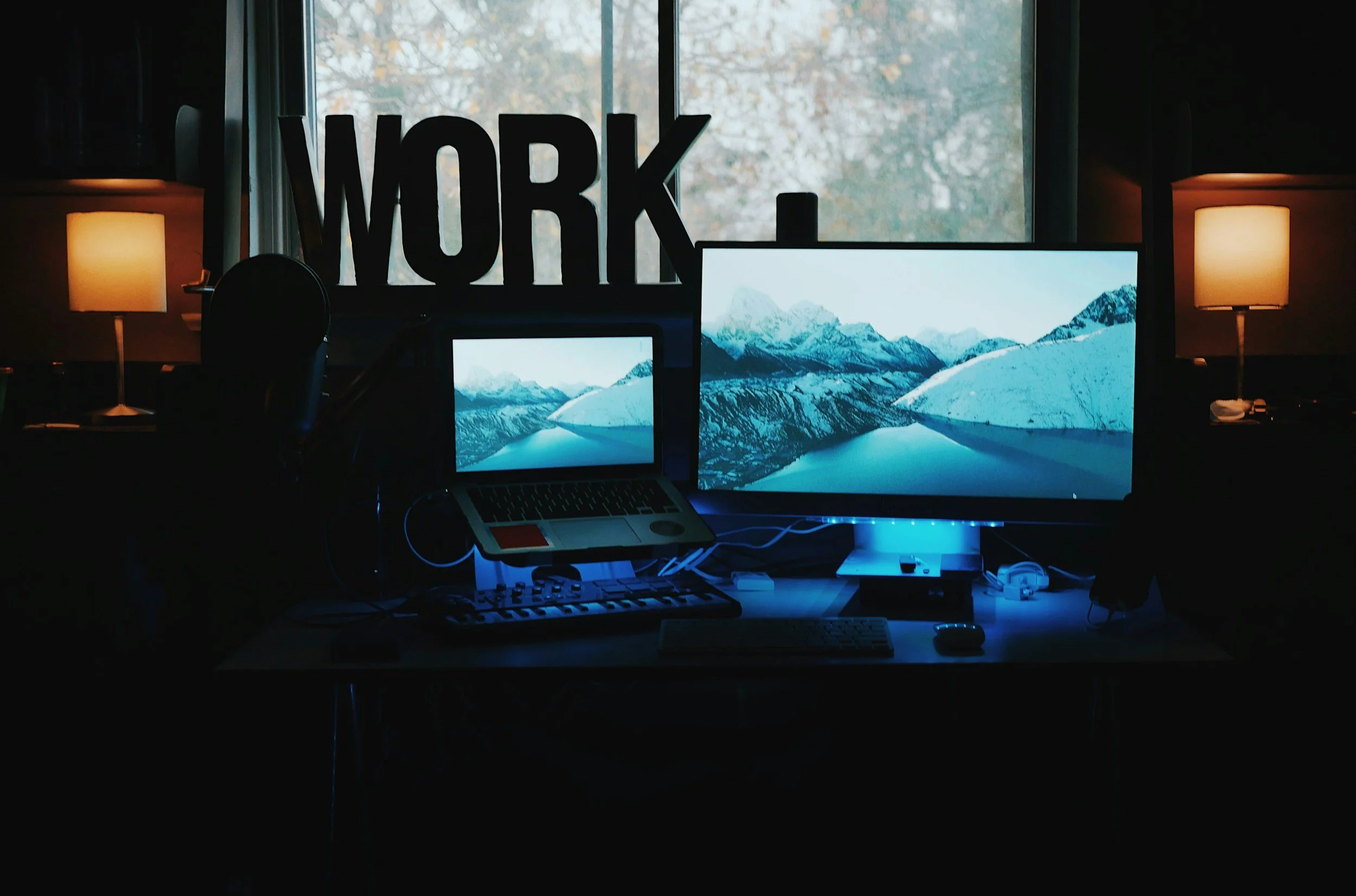What's Actually In Your Control: The Actor's 90%
By: Eddie Ramos | September 22, 2025 08:02 AM
Ask any actor, and they’ll tell you—so much of this industry feels out of your hands. Casting decisions, industry connections, timing, and even sheer luck can determine who books the role. It’s easy to get caught up in what you can’t control, and that mindset can leave you feeling powerless or discouraged.
But here’s the truth: while you may not control that final “yes,” you do control almost everything leading up to it. In fact, around 90% of your career growth comes from the choices, habits, and effort you put in daily. That’s the part that makes the difference between waiting for opportunities and actively building a career.
This article is about focusing on that 90%—the consistent, actionable steps that are fully within your power. From how you train to how you present yourself to the industry, these are the things that create momentum and keep you ready when opportunity knocks.
So, let’s dive into the 10 things you can fully control as an actor.
1. Matching Your Daily Habits to the Career You’re Trying to Build
Photo by Daniel Chekalov on Unsplash
Success as an actor doesn’t just happen in the audition room—it starts with the way you live every single day. Your habits either bring you closer to your goals or quietly pull you away from them. If you see yourself as a working actor, your lifestyle needs to reflect that vision. That means showing up for yourself before you even show up for casting.
Practical examples: begin the day with vocal warmups to keep your instrument sharp. Read scripts, plays, or screenplays regularly to stay fluent in story and character work. Dedicate time to networking—whether through industry events, social platforms, or simply supporting other actors’ work. And don’t underestimate the role of health and fitness: stamina, clarity, and confidence come from taking care of your body.
Over time, these small, consistent choices build your professional identity. They shape the discipline and presence that casting directors notice long before they say “yes.”
2. Refreshing Your Headshots with Different Looks
Your headshot is often your very first impression—it’s the image that determines whether casting directors even click on your profile. If it doesn’t reflect who you are right now or the types of roles you’re aiming for, you’re already at a disadvantage. That’s why refreshing your headshots is one of the simplest, most powerful things you can control.
Think of them as your personal branding. A strong set should include different looks—commercial, dramatic, comedic, or even character-specific vibes depending on your goals. This versatility helps casting professionals imagine you in multiple roles. Update your photos every one to two years, or sooner if you’ve made a major style change.
A polished, current headshot communicates that you’re serious, professional, and ready for opportunities. It doesn’t guarantee a booking—but it makes sure you get in the door.
3. Consistently Working on Your Acting Skills
Photo by @noblebisonproductions
Acting is like any other craft—it requires continuous sharpening. The truth is, no matter how talented you are, skills fade without practice. That’s why consistent training is something fully in your control, and it’s what separates working actors from those who stall.
Take regular classes in areas that challenge you: scene study, improv, on-camera technique, or voice work. Each one strengthens a different muscle. Outside of class, practice on your own—read monologues, analyze scripts, record yourself performing and review with a critical eye. Even watching films and theatre performances can become training if you study choices actors make and imagine how you’d approach the role differently.
Think of skill-building as building muscle memory. The more you work, the faster you can drop into character, respond truthfully, and stay grounded under pressure. Consistent practice means that when the audition arrives, you’re not scrambling—you’re already prepared.
4. Creating a Demo Reel to Showcase Your Type + Talent
Photo by @chrisyangchrisfilm
In today’s industry, your demo reel is just as essential as your headshot. It’s your highlight reel—the quick, powerful snapshot that shows casting directors who you are and what you can do. A strong reel doesn’t just show talent; it communicates your “type.” Are you the romantic lead, the quirky best friend, the corporate professional, or the villain? Knowing your lane helps you curate clips that market you effectively.
Keep your reel short and sharp—around one to two minutes. Use professional-quality footage if possible, but if you’re starting out, even well-shot self-tapes can showcase your skills. Prioritize quality over quantity; one authentic, grounded performance clip is worth more than three weak ones.
Your demo reel is the bridge between being a face in a pile of submissions and being remembered. It tells the industry: This is me, and this is what I bring to the table.
5. Submitting Daily (3x per Day)
Photo by @maximyuryshev
One of the biggest truths about acting is this: it’s a numbers game. The more often you put yourself in front of casting directors, the higher your chances of landing auditions and eventually booking roles. Submitting daily—ideally multiple times a day—isn’t about desperation, it’s about consistency. It’s showing up, again and again, so when the right role comes along, you’re already in the mix.
Treat submissions like part of your job. Block out time each day to search for new postings, tailor your applications, and send them out. Even if you don’t hear back from most, remember: visibility compounds. Casting directors begin to recognize your face, your name, and your professionalism. Over time, your persistence creates momentum.
Actors who submit once a week may only stumble onto opportunities. Actors who submit daily are actively building them. You can’t control whether you’re cast—but you can control how often you throw your hat into the ring.
6. Fully Breaking Down Each Script Before an Audition
Photo by @harryswales
When you get an audition, it’s tempting to just memorize the lines and hope your instincts carry you through. But what separates a forgettable audition from a powerful one is the work you put in beforehand. Breaking down the script means going deeper—understanding not just what your character says, but why they say it.
Look at the relationships: who are you talking to, and what do they mean to your character? Explore the stakes: what happens if your character doesn’t get what they want? Identify the subtext: what’s being felt but not spoken? When you analyze these layers, your choices become more specific, grounded, and truthful.
Casting directors notice preparation. They can tell when you’ve built a world around the character versus when you’re just reciting lines. By fully breaking down the script, you walk into every audition as if you already belong in the role.
7. Polishing Your Resume on Acting Profiles
Your resume is more than a list of credits—it’s your professional track record. Casting directors often glance at it before deciding whether to bring you in, so keeping it polished and up to date is fully within your control. Every new class, workshop, role, or special skill deserves to be added.
Consistency matters too. Make sure your resume matches across all your online profiles—Casting Networks, Backstage, Actors Access, or your personal website. Even small discrepancies can look unprofessional.
Think of your resume as a living document that reflects your growth. A clean, updated resume shows that you’re active, engaged, and serious about your craft. While you can’t force anyone to read it deeply, you can make sure that when they do, it represents the very best version of you.
8. Turning in Strong + Grounded Self-Tapes
Photo by @@impatrickt
Self-tapes have become the new standard for auditions, and in many cases, they’re the only chance you get to make an impression. The good news? Every element of your self-tape is something you can control. From lighting and sound to framing and performance, each detail adds up to a professional submission.
Start with the basics: use natural or soft lighting, a quiet space, and a neutral background that keeps the focus on you. Invest in a tripod or phone stand so your shot is steady and framed well. Most importantly, ground your performance. Avoid the temptation to “push” or over-act for the camera—casting directors are drawn to authenticity and subtlety.
Every self-tape is an opportunity to showcase not just your talent, but also your professionalism. Strong tapes tell casting: here’s an actor who takes the work seriously and delivers quality, every single time.
9. Not Missing Opportunities and Deadlines
Photo by @dre0316
In acting, timing is everything. A perfect self-tape or submission loses its power if it arrives late. Casting directors work on tight schedules, and they rarely make exceptions. Missing a deadline doesn’t just cost you one opportunity—it can damage your reputation for reliability.
Read More: How Do I Stop Procrastinating To Do My Audition?
This is completely in your control. Create systems that help you stay on top of tasks: set calendar reminders, keep a submission checklist, or dedicate a specific time each day to check for new casting calls. The more organized you are, the less likely opportunities slip through the cracks.
Being prompt communicates professionalism. It shows casting directors that you respect their time and can be trusted to deliver on schedule. In an industry where reliability is gold, meeting deadlines sets you apart.
10. Being On Time and Easy to Work With
Photo by @ruqayyahsheriff
Talent may get you in the room, but professionalism keeps you getting called back. Casting directors and directors often say the same thing: they’d rather hire a dependable actor who’s good than a brilliant actor who’s difficult. Being on time, respectful, and easy to collaborate with goes a long way in this industry.
Showing up early to auditions or set communicates reliability. Listening to direction with openness shows humility and adaptability. And treating everyone—assistants, crew members, fellow actors—with kindness creates a reputation people remember. Word spreads quickly in the acting community, and being known as someone who is professional and pleasant can lead to repeat opportunities.
You can’t control whether you’re someone’s “perfect fit” for a role, but you can absolutely control how you show up. And that professionalism often becomes your strongest asset.
Conclusion
You can’t control who gets cast, industry trends, or sheer timing—but you can control how you show up. The habits, preparation, and professionalism you bring each day form the foundation of your career. When you focus on the 90% that’s in your hands—training, submissions, self-tapes, deadlines, and reliability—you build consistency, momentum, and trust. That’s what makes casting directors remember you. The rest may be uncertain, but your effort never is. Own what’s in your control, and the opportunities will come.










